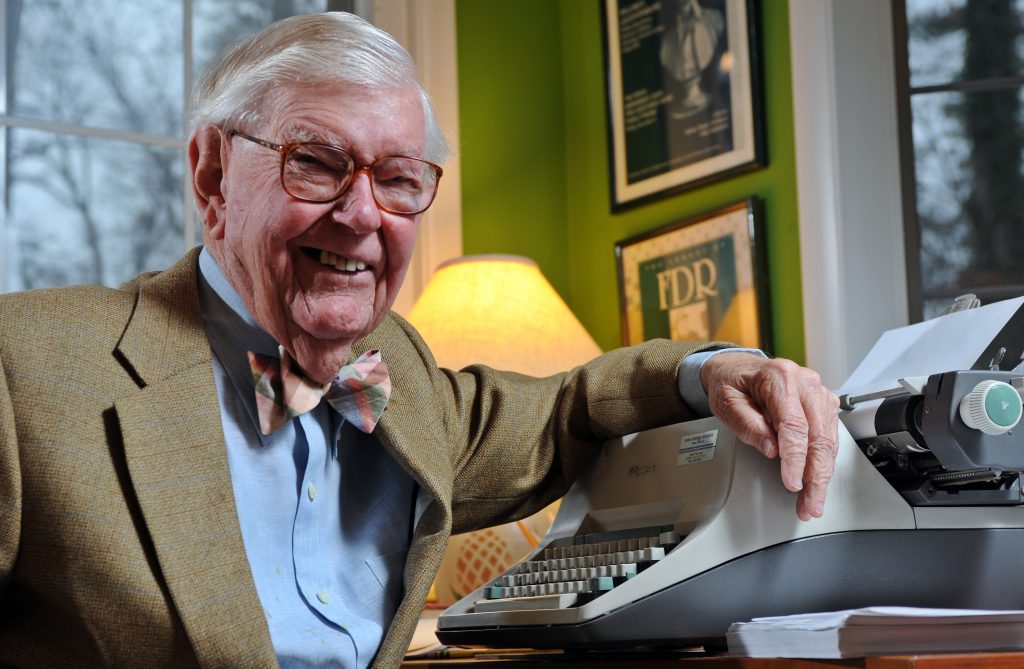
As a longtime faculty member in the department of sociology, Glen Elder (Ph.D. ’61) is aware of the funding challenges faced by its students. That’s why when he and his wife decided to make a planned gift to UNC, they chose to support graduate students in sociology.
Elder, the Howard W. Odum Distinguished Research Professor of Sociology, and Sandy Aldridge Turbeville ‘63, recently made a bequest to establish the Glen H. Elder Jr. Fund in Sociology. Elder and Turbeville hope the endowment will one day provide one-year fellowships to enable the department’s most outstanding doctoral students to concentrate on completing their dissertations.
“We love the idea of supporting a specific activity of graduate students,” said Elder, who also holds joint positions as a research professor of psychology and a fellow of the Carolina Population Center. “Their dissertation is something that will significantly influence their careers and will give them the chance to focus without having to worry about money.”
Department chair Howard Aldrich said the gift will provide a critical source of support for graduate students in sociology.
“One of the biggest financial problems we face is that there is limited funding for graduate support,” Aldrich said. “The fact that Glen and Sandy stepped forward and created this planned gift is tremendous for us. When this comes to pass, essentially 15 to 20 percent of our students could be supported by this gift, which is a huge boost to our graduate program.”
For Elder, supporting those just getting started in their careers has a special meaning beyond simply helping the department. Throughout his nearly 50-year academic career, he has mentored dozens of graduate students, postdoctoral researchers and junior faculty.
“I’ve loved mentoring, and I’ve done a lot of it,” Elder said. “Mentoring enables me to pass on to younger generations the great opportunities I have enjoyed over my career.”
Michael Shanahan is one of Elder’s former postdoctoral researchers. Now a professor of sociology at UNC, Shanahan worked with Elder from 1992 to 1995.
“In addition to being a world-class scholar, Glen is a positive, energetic person who is always brimming with ideas and a sense of excitement for the future,” Shanahan said. “Glen is an exemplary mentor — he takes a great personal interest in the success of his students and follows their careers with enthusiasm. He’s always seeking ways to foster their careers, whether they are just starting out or being promoted to a chaired professorship.”
Elder is one of the founders of life course studies, an area of research focused on how people’s lives reflect social forces. His 1974 book, Children of the Great Depression, is among the most-cited and respected works in the behavioral sciences. Although much of his research has had implications for other disciplines, especially psychology, Elder says that sociology has always provided the foundation for his work. He collaborated with the late Robert Cairns in psychology to establish the Carolina Consortium on Human Development in the late 1980s, and several years later the Center for Developmental Science.
Elder earned his bachelor’s degree from The Pennsylvania State University and his master’s degree from Kent State University in Ohio before first arriving in Chapel Hill to pursue his doctorate in sociology. After graduating in 1961, he worked as a researcher and professor at the University of California-Berkeley before returning to UNC in 1967 as an associate professor of sociology. With the exception of a brief tenure at Cornell University in the early 1980s, Elder has spent the latter half of his career at UNC.
Although he no longer teaches, Elder remains involved in a number of collaborative research projects and still travels to conferences and professional meetings in the field. Despite his many research and teaching contributions to UNC and beyond, he considers his bequest to the department to be one of his most important legacies.
“I’ve put my life into this work, so why shouldn’t we support the department?” Elder said. “I couldn’t think of anything better to do.”
[ By Joanna Worrell Cardwell (M.A. ’06), fall 2012 Carolina Arts & Sciences magazine ]




